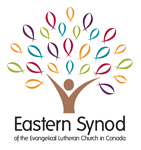COMING OUT TO YOUR CONGREGATION
BEST PRACTICES AND ADVICE
FROM FELLOW RELIGIOUS LEADERS WHO HAVE LEFT THE CLOSET
2018
This resource is written from our particular perspective as Rostered Ministers (ordained pastors or consecrated deacons) in the Evangelical Lutheran Church in America and the Evangelical Lutheran Church in Canada. We do hope and believe, however, that the insight we gleaned from the experiences of Rostered Ministers is helpful to people serving in different capacities such as: pastors in other denominations, leaders of youth ministries, etc. If you’re not a Rostered Minister in the ELCA, please feel free to make use of this resource in whatever way you see fit and to adapt it as needed to fit your own context and polity. In order to make this resource accessible to as many people as possible who might find it useful, we’re using the term “religious leaders” since we recognize that “Rostered Ministers” doesn’t mean much outside of our own denomination.
INTRODUCTION
If you’re reading this, then you are embarking on a journey that may seem impossible, perilous, or maybe even foolish, but we believe it will be worthwhile and ultimately very beneficial. There is no right or wrong way to come out, but in a religious context, there are often additional layers that make it difficult.
“This admission comes from a life’s journey of discovery, growth and revelation. My own study, preaching, teaching, and spirituality have allowed me to grow in faith and I find myself trusting more deeply everyday in the very thing I have been called to proclaim, the love and grace of God. From that trust I have discovered comes new life and the courage to face my own fears. I am now conscious that to be authentic I must not only preach the truth, I also have to live it. I can no longer proclaim to you that you should live lives of transparency and vulnerability without fear unless I also do the same.”1
The resource we have put together here is tailored to the specific dynamics of religious leaders who are not currently publicly identified as LGBTQIA+, and are at a stage in their life and journey of self-discovery when they desire to share this part of their identity in order to foster more authentic, healthier relationships between themselves and their congregation, or the institution in which they serve. This is a spiritual transformation too. Churches have historically been places of extreme vitriol and violence towards queer people, but they have also been shelters, sources of inspiration, and liberating environments for us to thrive. Today we invite you to the open welcome of God’s house and the life you have been formed to lead.
Continue Reading:
